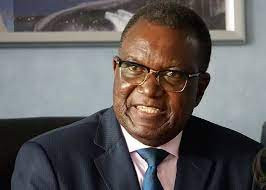
THE European Union (EU) and the Zimbabwe Human Rights Commission (ZHRC) yesterday welcomed the move by government to abolish the death penalty, describing it as a bold step in upholding the sancity of human life.
President Emmerson Mnangagwa on December 31, last year, signed the Death Penalty Bill into law. With the passing of this law, Zimbabwe has become the 127th country in the world to abolish the death penalty. Zimbabwe had not executed any death row prisoner since 2005.
ZHRC said the landmark step was a significant milestone in Zimbabwe’s commitment to upholding the sanctity of human life, as enshrined in section 48 of the Constitution, which protects the right to life, alongside sections 51 and 53 which respectively guarantee the rights to dignity, and freedom from torture, cruel, inhuman and degrading treatment.
“This legislative development aligns with modern human rights standards and reflects the global trend towards the abolition of the death penalty. Zimbabwe now joins a growing number of nations that have recognised the inherent dignity of every human being, regardless of their past actions,” read the ZHRC statement.
The key provisions of the Death Penalty Abolition Act include, prohibiting courts from imposing the death penalty for any offence, substituting the death sentence with other appropriate penalties, ensuring the re-sentencing of prisoners currently on death row to penalties that consider individual circumstances, including time served and health conditions.
ZHRC applauded the inclusive and compassionate approach taken in the transitional provisions of the Act, ensuring prisoners under the death sentence are afforded legal representation and the opportunity for clemency, underlining the importance of rehabilitation over retribution in Zimbabwe’s justice system.
“The ZHRC highly commends the unity of purpose demonstrated by the political leadership across the political divide, notably, Honourable Edwin Mushoriwa who introduced the Private Member's Bill in November 2023, Honourable Minister Ziyambi Ziyambi who facilitated the passage, members of Parliament as a whole, and His Excellency President Emmerson Mnangagwa who signed the Bill into law. ZHRC urges such unity to continue for the sake of promoting human rights in Zimbabwe,” it said.
The commission added that it recognised the challenges faced in addressing grave crimes, but firmly maintained that the death penalty was not the solution and that evidence worldwide showed that the death penalty did not deter crime more effectively than other punishments. Instead, its abolition allowed for a more humane and restorative justice system and called on all stakeholders — government bodies, civil society and citizens to support the full implementation of the Act and to work collectively towards building a Zimbabwe where justice, equality and respect for life prevailed.
- Mavhunga puts DeMbare into Chibuku quarterfinals
- Bulls to charge into Zimbabwe gold stocks
- Ndiraya concerned as goals dry up
- Letters: How solar power is transforming African farms
Keep Reading
The European Union called on Zimbabwe to take a further step by removing the provision allowing for the temporary reintroduction of the death penalty during a state of public emergency.
"The death penalty is incompatible with the inalienable right to life and a cruel and inhuman punishment, representing an unacceptable denial of human dignity and integrity. No compelling evidence exists to show that it serves as a deterrent to crime, while any miscarriages of justice are irreversible,” the bloc said, adding that it would continue working for the death penalty to be removed “in the remaining countries where it is still in force”.










